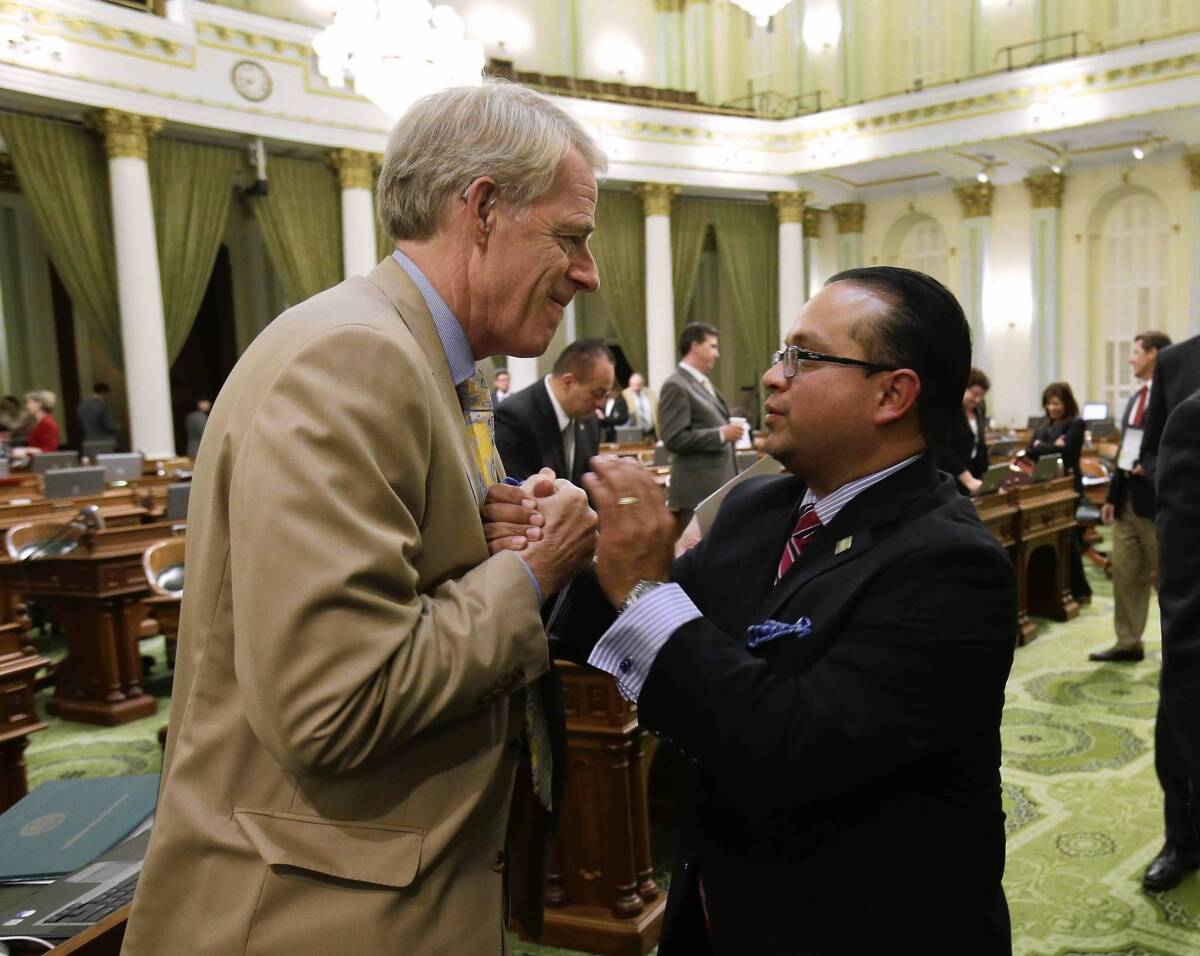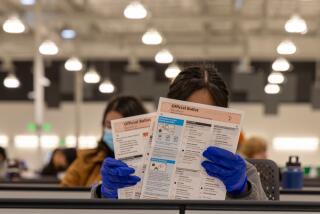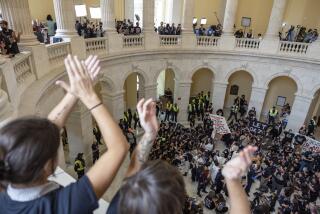California lawmakers got a lot done in the last session

SACRAMENTO — It’s a new era in Sacramento — a markedly improved one, so far.
Watching the lawmakers, you don’t cringe nearly as much.
They’re actually getting things done in the state Capitol. You can set aside that old label “dysfunctional.”
Even if some things they’re doing aren’t to your liking — and some certainly aren’t to mine — the mechanisms of governance are churning. Gridlock has been broken.
The transformation was apparent in the legislative session that adjourned for the year Thursday night, especially in the final days.
It helped, of course, to be freed from a years-long budget crisis. No longer are the governor and legislators preoccupied with fighting over which public services to whack. Credit past cutting, a recovering economy and Gov. Jerry Brown’s tax increase last year.
But just as important, some recent voter-enacted reforms are starting to take hold. Specifically:
• Looser term limits. Allowed to serve 12 years in one house, new legislators aren’t arriving in the Capitol searching for their next job. They have a greater sense of stability.
Freshman Assemblyman Marc Levine (D-San Rafael) is a good example. When his local senator announced that she wouldn’t seek reelection next year, instead of immediately plotting to move up to her seat — the normal instinct — Levine decided to remain in the lower house.
“I’m part of an historic freshman class that will have an opportunity to work together for 12 years,” he told me. “We can build relationships and get our hands dirty learning about issues. We’ll have time to review the laws we pass and make them better or get rid of them.”
It’s called oversight, a necessary legislative role that all but disappeared under term limits. It’s about taking the long view and planning for California’s future.
• The top-two open primary, with the two biggest vote-getters, regardless of party, facing each other in the general election. This improves prospects for the election of pragmatic moderates.
Again, Levine is an example. He finished second in last year’s primary and then beat a fellow Democrat, a party-backed liberal incumbent. “I couldn’t have been elected under the old system,” he notes.
• Honest redistricting by a citizens commission, creating more competition. No longer are districts gerrymandered to ensure victory for one party. More lawmakers must pay at least some attention to voters of the other party.
Perhaps partly because of that, there didn’t seem to be as much strident polarization and ideological fanaticism this year.
An example was the Senate debate over the previously hot-button issue of granting driver’s licenses to undocumented immigrants. No Republican stood up to argue against the bill, although eight cast “no” votes.
Of course, that also could be because Republicans have been hammered politically on illegal immigration, and they’re learning to mute the demagoguery.
That driver’s license bill also generated an example of legislative boldness — or maybe chutzpah — that I’ve never seen before.
The author, Assemblyman Luis Alejo (D-Watsonville), announced last week that he was shelving the bill for the year. Labor had objected to the measure’s placing a special mark on the license that indicated the holder was undocumented.
Latino senators were outraged at the bill’s shelving. And so was the governor. “Send me the bill and I’ll sign it,” Brown promised Sen. Kevin de Leon (D-Los Angeles).
So De Leon — in what surely was a legislative first — hijacked a fellow Democrat’s bill without telling him and ramrodded it through the Senate. Alejo then felt compelled to carry it through the Assembly.
“We don’t have the luxury to consider abstract esoteric concepts of purity when it comes to undocumented immigrants,” De Leon told me. “They’re working people with real lives who need driver’s licenses now.”
That’s an example of independent, protocol-be-damned thinking that certainly hasn’t been commonplace in the Capitol. There also was a new pragmatism among lawmakers that led to compromise.
Sen. Fran Pavley (D-Agoura Hills) tenaciously pushed a bill seeking to regulate an increasingly employed oil drilling method called hydraulic fracturing, or fracking. Both the oil industry and her fellow environmentalists fought the measure — the former insisting it was too burdensome, the latter complaining it was too weak.
But, with no current California regulation of fracking at all, Pavley was determined to get the best deal she could. She did and got Brown’s commitment to sign it.
Senate leader Darrell Steinberg (D-Sacramento) similarly tried to negotiate an overhaul of the much-abused California Environmental Quality Act (CEQA), the bane of developers and other entrepreneurs.
Labor — which uses CEQA to “greenmail” developers into union contracts — didn’t want any reforms. Neither did environmentalists. And the business lobby — not knowing how to declare victory — complained that Steinberg’s bill wasn’t good enough.
So Steinberg walked away from them all and grabbed what he could: some limited streamlining of development and expediting of a new downtown basketball arena for the NBA Sacramento Kings. Brown also is expected to sign that measure.
Brown is the poster boy for why term limits are lousy. If he had been barred because of his first two terms in the ‘70s from being governor now, his office would be occupied by some neophyte still on training wheels.
Two weeks ago I wrote that, other than a compromise on prison crowding, not much of importance was likely to be resolved by the Legislature before it adjourned. OK, I blew that.
After Brown secured his prison bill, he turned to facilitating other compromises.
Incrementalism works. Incremental reforms have led to incremental progress. That’s new and refreshing.
More to Read
Start your day right
Sign up for Essential California for news, features and recommendations from the L.A. Times and beyond in your inbox six days a week.
You may occasionally receive promotional content from the Los Angeles Times.







